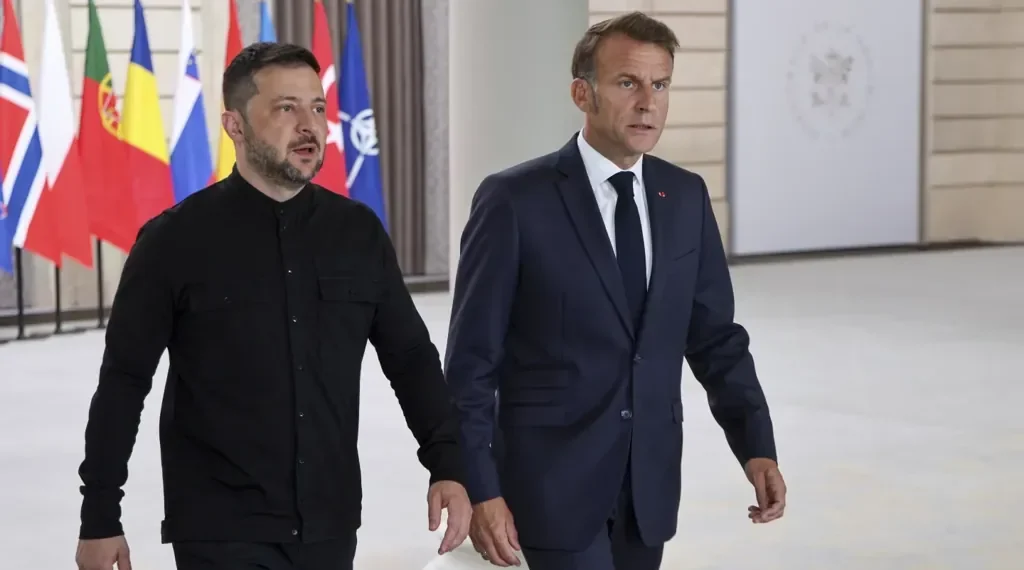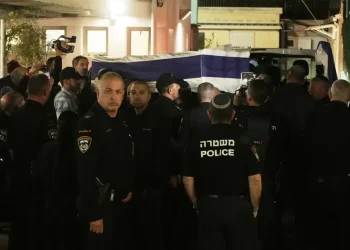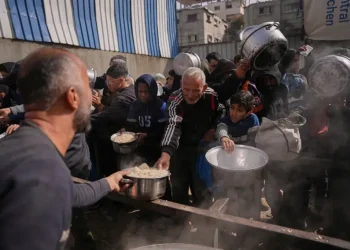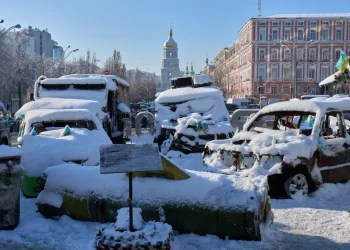Macron Confirms 26 Countries Will Join Ukraine Reassurance Force After War
Published Time: 09-05-2025, 14:30
French President Emmanuel Macron announced that 26 nations have pledged to provide troops and security forces for Ukraine once active fighting in the war with Russia ends. The commitment, made during a high-level meeting in Paris, underscores international efforts to guarantee Ukraine’s long-term stability after a ceasefire or peace agreement is reached.
A Coalition to Secure Ukraine’s Future
The announcement followed a gathering of the “coalition of the willing,” a group of 35 nations supporting Kyiv. According to Macron, 26 of those countries confirmed plans to deploy forces on land, at sea, or in the air to help ensure Ukraine’s security in the post-war period.
Macron emphasized that the reassurance force would not be designed to wage war against Russia, but rather to deter further aggression. “The objective is to prevent any new major attack and to involve the 26 states directly in Ukraine’s lasting security,” Macron said at a joint press conference with Ukrainian President Volodymyr Zelenskyy.
The French leader also noted that Washington had signaled its readiness to participate in the planning process, though specific details remain under discussion.
U.S. Signals Conditional Support
Both Macron and Zelenskyy highlighted that the United States has expressed willingness to contribute to the security framework. While the scope of U.S. involvement is not yet defined, Macron said planning would be finalized in consultation with Washington.
Zelenskyy welcomed the development, adding: “As for in what format, I am not yet ready to tell you in detail, but the U.S. position is very important for us.”
British Prime Minister Keir Starmer, co-leading the initiative with Macron, has repeatedly stressed that U.S. backing is essential for any European reassurance mission to succeed.
Pressure on Russia to End the Conflict
European leaders participating in the Paris meeting—some in person, others virtually—called on Russian President Vladimir Putin to work toward ending hostilities. Germany warned that sanctions against Moscow would intensify if Russia continued to delay peace efforts.
Following the session, leaders also spoke by phone with U.S. President Donald Trump, who urged Europe to stop buying Russian oil and gas, citing figures that the EU had paid Moscow approximately €1.1 billion in fuel sales over the past year. Trump also encouraged stronger economic pressure on China, accusing Beijing of indirectly funding Russia’s war.
German Chancellor Friedrich Merz proposed three areas of focus, including convening a summit with Zelenskyy, pushing for a ceasefire agreement, and expanding sanctions if Moscow resists negotiations.
Zelenskyy Calls for Direct Talks with Putin
President Zelenskyy reiterated his view that direct negotiations with Putin are essential. “This is not a matter of desire, this is a matter of necessity,” he said. Zelenskyy added that Ukraine remains open to bilateral or trilateral formats, accusing Russia of deliberately delaying talks.
Putin, meanwhile, stated that a settlement could be possible “if common sense prevails” and noted that Trump has shown “a sincere desire” to help reach an agreement. Russian officials have yet to formally respond to Macron’s reassurance force proposal.
NATO and Security Guarantees
In a shift of U.S. policy earlier this year, Washington signaled openness to supporting security guarantees for Ukraine similar to NATO’s collective defense commitments. Zelenskyy has said Kyiv hopes for continued American intelligence sharing and air defense support as part of any post-war arrangement.
NATO Secretary-General Mark Rutte underscored the need for a broad coalition, both to safeguard Ukraine and to strengthen Europe’s ability to deter Russian military actions elsewhere.
“We cannot be naive about Russia,” Rutte said. “Our deterrence must be strong enough that they never attempt further aggression, knowing that the response would be devastating.”
Escalation and Drone Attacks in Ukraine
While diplomatic talks continue, the war has not paused. Ukraine’s Air Force reported that Russia launched 112 strike and decoy drones overnight Thursday, with Ukrainian defenses intercepting or jamming 84.
Separately, Moscow announced the expulsion of an Estonian diplomat, a move seen as retaliation for Tallinn’s recent decision to declare a Russian envoy persona non grata.
Outlook: Balancing Diplomacy and Defense
The Paris meeting marked a significant step toward outlining Ukraine’s post-war security framework. With 26 nations committing to a reassurance force, leaders sought to send a strong signal to Moscow that international support for Ukraine will not waver, even after a ceasefire.
Still, uncertainties remain over the precise structure of U.S. involvement, the durability of European unity, and whether Russia will agree to peace talks. For now, Kyiv continues to prepare for both ongoing conflict and the complex negotiations that will shape its long-term security.
This article was rewritten by JournosNews.com based on verified reporting from trusted sources. The content has been independently reviewed, fact-checked, and edited for accuracy, neutrality, tone, and global readability in accordance with Google News and AdSense standards.
All opinions, quotes, or statements from contributors, experts, or sourced organizations do not necessarily reflect the views of JournosNews.com. JournosNews.com maintains full editorial independence from any external funders, sponsors, or organizations.
Stay informed with JournosNews.com — your trusted source for verified global reporting and in-depth analysis. Follow us on Google News, BlueSky, and X for real-time updates.













